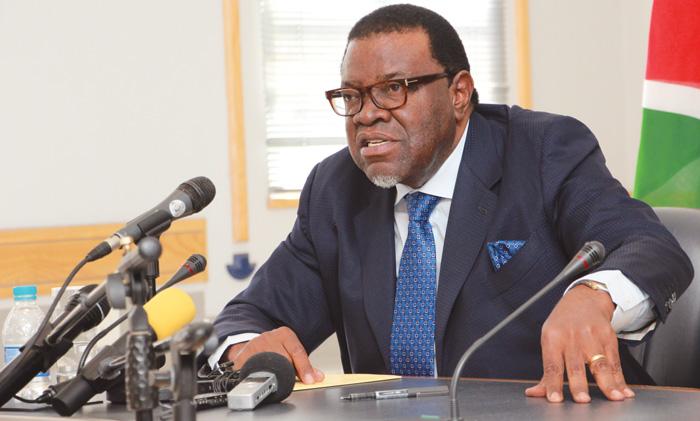
UNAIDS and City of Windhoek discuss the Fast-Track-Cities initiative

The Mayor of Windhoek, Dr. Job Amupanda, and a delegation from UNAIDS lead by Dr. Alti Zwandor, Country Director this week discussed the Fast-Track-Cities (FTC) initiative.
The FTC initiative aims to engage cities leadership and stakeholders to accelerate their local AIDS response towards achieving the 95-95-95 targets by 2030.
Dr. Zwandor said the City of Windhoek was the first town to sign the FTC initiative out of the five towns that have signed it in Namibian and that UNAIDS has collaborated well with previous Windhoek Mayor and City of Windhoek employees to implement the project.
“We want the current mayor to recommit to the targets set out under the initiative particularly because Windhoek is lagging behind in all three fronts in comparison to the national statistics,” indicated Dr. Zwandor.
She further stated that they have worked with the City of Windhoek to develop a strategic plan on HIV which became operational in 2017 and to conduct a mid-term review in 2020 to align the strategy to the national policies on HIV.
She also noted that one of the issues facing Windhoek is that men are lagging behind in terms of HIV/AIDS awareness hence a male engagement plan was developed for Windhoek to address it.
“Windhoek also has the biggest number of sex workers in Namibia and yet they have limited access to HIV facilities compared to other towns,” she added.
Amupanda on his part said the Windhoek Municipal Council will support the initiative and provide the required leadership.
“We wish to move away from the role of coordinating projects to driving them and take ownership, therefore we need to develop capacity in research, by sending staff members for studies to produce data that will complement our HIV response in informal settlements,” he added.
Amupanda further seeks to introduce the Windhoek Institute of Communicable Disease through partnerships or to capacitate the City’s Health and Environmental Services Division to research the different health issues facing communities.
“There was a research gap on the impact of Covid-19 on HIV, which needs to be addressed,” he concluded
The 95-95-95 goals aim to achieve, 95% of people living with HIV knowing their status, 95% of people who know their HIV-Positive status on treatment and 95% of people on treatment with suppressed viral loads.










































